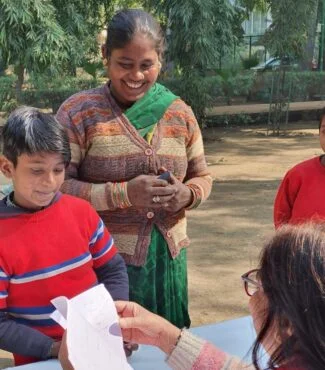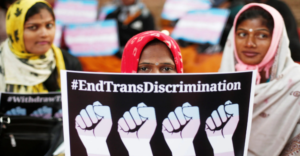~ Alisha Mehra
We find the notion of a literate India quite incredible now, don’t we? A recent survey placed the literacy rate in India at 77.7% , with the State of Kerala securing a staggering rate of 96.2%. But evidence still indicates a gap in adult literacy. What if all the elders who weren’t bestowed with the same privilege as children were proffered another chance at education? Would it change the portrayal of Indian society as perceived by the world or would it in the final analysis contribute to making our country a better place to live in?
The Padhna Likhna Abhiyan
The Ministry Of Human Resource Development bet on this idea through its new scheme, that is, the Padhna Likhna Abhiyan which will encourage as well as assist the school kids of class 6th to 10th in teaching the elderly members of their family after school hours to reach total literacy. This scheme is scheduled to get launched within the next two months and strives to tackle the post-Covid19 challenges faced by the country.
Purpose and Implementation Goals
The government plans to provide teaching material to student volunteers, along with some guidelines. The ministry requests all the stakeholders, including state governments, civil society organisations, corporate bodies, intelligentsia and fellow citizens, to join hands in transforming India to a fully literate society making the country a “Saakshar Bharat-Aatmanirbhar Bharat.” meaning literate India, self-reliant India. The Chhattisgarh government has targeted to make 2.5 lakh people aged above 15 years literate through volunteer instructors under this campaign.
Padhna Likhna Abhiyan will focus on the Basic Literacy portion in a four months cycle amongst the adults of the nation, be it parents or grandparents.For this purpose, the government think tank, NITI Aayog, has underlined 112 Aspirational Districts. Under this scheme, monumental literacy projects will be launched in the tribal and forests areas, prisons, slums, etc. with the technology as a facilitator. The inclusion of technology will ensure that quality education is imparted in the backward areas with the creation of e-materials, mobile apps and more. The goal endeavours to achieve 100% or Total Literacy by 2030. Like many of the other schemes, this will be merged with the existing projects of the government.
Rationale Behind the Scheme
Similar to all the noble foundations, this campaign has also been inspired by a touching idea that enabled the HRD minister Shri Prakash Javedkar to kickstart such an influential campaign to spread literacy in the Indian society. He conceived this idea from his school days, where he used to help his mother and teacher in providing education to illiterate people. Mr Pokhriyal at a 54th International Literacy Day event articulated, “The principal target of the programme is to impart functional literacy and numeracy to 57 lakh non-literate and non-numerate adults in both rural and urban areas across the country in the age group of 15 years and above.” He further drew insights from the literacy rate in India and added, “This target mostly comprises women, scheduled castes, scheduled tribes, minorities and other disadvantaged groups. In the scheme, among others, priority will be given to districts with female literacy rates less than 60 per cent as per the latest census.” Significant convictions often require brilliant implementations and the Padhna Likhna Abhiyan is one such conviction held by our government. It is indeed true that when parents are not educated, they are often unable to furnish the necessary inspiration for their studies, however, in a world where children themselves shepherd the inspiration and aid their parents as well as grandparents to study effectively, there is undeniably a scope for a much better and a vibrant future.
Read more about- How education and stress are related.





